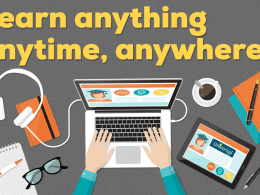Are you tired of hearing about the never-ending cycle of poverty and inequality? Do you believe that education can be a powerful tool in breaking this vicious cycle? If so, then you’re in the right place. In this blog post, we’ll explore how early childhood education can make a difference in combating poverty and inequality. So grab your coffee, settle into your favorite chair, and let’s dive into the world of education as a catalyst for change!
What is early childhood education?
Early childhood education generally refers to the educational opportunities and resources available to children from birth until they enter kindergarten. In the United States, early childhood education typically begins at age three, when children are eligible to enroll in public preschool programs.
There is a growing body of evidence that suggests that investing in early childhood education can have a significant impact on a child’s future success in school and in life. Studies have shown that children who attend high-quality early childhood programs are more likely to graduate from high school and college, and less likely to become involved in crime or abuse drugs or alcohol.
There are a number of reasons why early childhood education can be so beneficial for children. For one, young children are at a critical stage in their development, and they learn best through active exploration and hands-on experience. Early childhood education provides an opportunity for children to learn through play and exposure to new ideas and concepts. Additionally, early childhood educators are trained to help support the whole child, including their social, emotional, and physical development.
One of the most important goals of early childhood education is to help close the achievement gap between low-income and higher-income students. Children from disadvantaged backgrounds often enter kindergarten behind their more affluent peers in terms of reading readiness and other skills. By providing all children with access to high-quality early childhood programs, we can help level the playing field so that all students have a fair shot at success in school and beyond.
How can early childhood education help combat poverty and inequality?
In the United States, nearly one in four children live in poverty, and children of color are disproportionately affected. Poverty has a profound impact on children’s health, academic achievement, and future success in life.
High-quality early childhood education can level the playing field for disadvantaged children, giving them the skills they need to succeed in school and in life. A growing body of research shows that early childhood education has lasting positive effects on health, earnings, and employment.
For example, a recent study found that every dollar invested in high-quality early childhood education programs for low-income three- and four-year-olds yielded up to $13 in benefits for society. The benefits included reduced crime, increased earnings, and improved health outcomes.
Investing in early childhood education is not only the right thing to do, it’s also good economics. High-quality early childhood education programs help break the cycle of poverty and inequality, benefiting individuals, families, communities, and our economy as a whole.
The benefits of early childhood education
It is well-documented that children who attend high-quality early childhood education programs have better life outcomes, including higher test scores, graduation rates, and earnings. But what is often less discussed are the benefits that early childhood education has for society as a whole.
There is growing evidence that investing in early childhood education can help break the cycle of poverty and inequality. A recent study found that every dollar invested in high-quality early childhood education programs can save society up to $13 down the road by reducing costs such as special education, criminal justice, and public assistance.
Investing in early childhood education also leads to more productive citizens. The same study found that children who attended high-quality early childhood programs were more likely to graduate from high school and go on to earn a college degree. These graduates are then more likely to get good jobs and pay taxes, which helps fund vital public services.
In addition to the economic benefits, investing in early childhood education also leads to better health outcomes for children and their families. Studies have shown that children who attend high-quality early childhood programs are more likely to have better health as adults, including lower rates of obesity, heart disease, and smoking. They are also less likely to need expensive medical care or require government assistance later in life.
The challenges of early childhood education
Early childhood education is widely recognized as a key to breaking the cycle of poverty and inequality. Yet, despite its well-documented benefits, quality early childhood education remains out of reach for many children and families, especially those who need it most.
There are a number of challenges that stand in the way of providing quality early childhood education for all children. First, there is a lack of investment in early childhood education. While some countries have made great strides in investing in early childhood education, others have not. This means that there are still large numbers of children around the world who do not have access to quality early childhood education.
Second, even in countries where there is investment in early childhood education, there can be disparities in the quality of care and educational experiences that children receive. This is often due to socio-economic factors, such as income level and parental education. Children from lower-income families are more likely to attend lower-quality child care facilities and to receive less individualized attention from their teachers. As a result, they are at a disadvantage from the start.
Third, even when children do have access to quality early childhood education, they may not benefit from it if their home environment is not supportive of their learning. This can be due to a number of factors, including poverty, parental stress or mental health issues, or chaotic family situations. When children do not have a stable home life, it can be difficult for them to take advantage of what they learn in
How to get involved in early childhood education
There are many ways to get involved in early childhood education. One way is to become a teacher. You can work in a daycare, Head Start program, or public school. Another way to get involved is to volunteer in a program or donate to an organization that supports early childhood education.
If you want to become a teacher, you will need to complete a bachelor’s degree in early childhood education. This will give you the knowledge and skills you need to work with young children. You can also complete a master’s degree in early childhood education if you want to further your career.
If you don’t want to become a teacher, there are still many ways you can support early childhood education. You can volunteer at a program or donate money to an organization that supports early childhood education. Your time and donations will help programs provide quality care and Education for young children.












